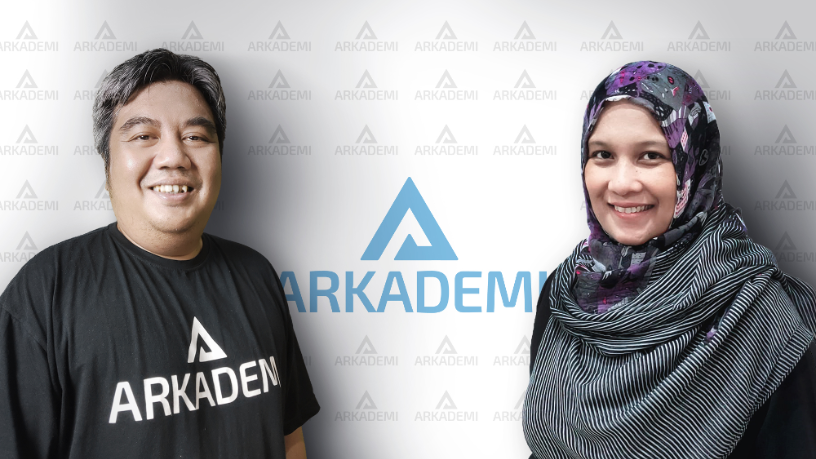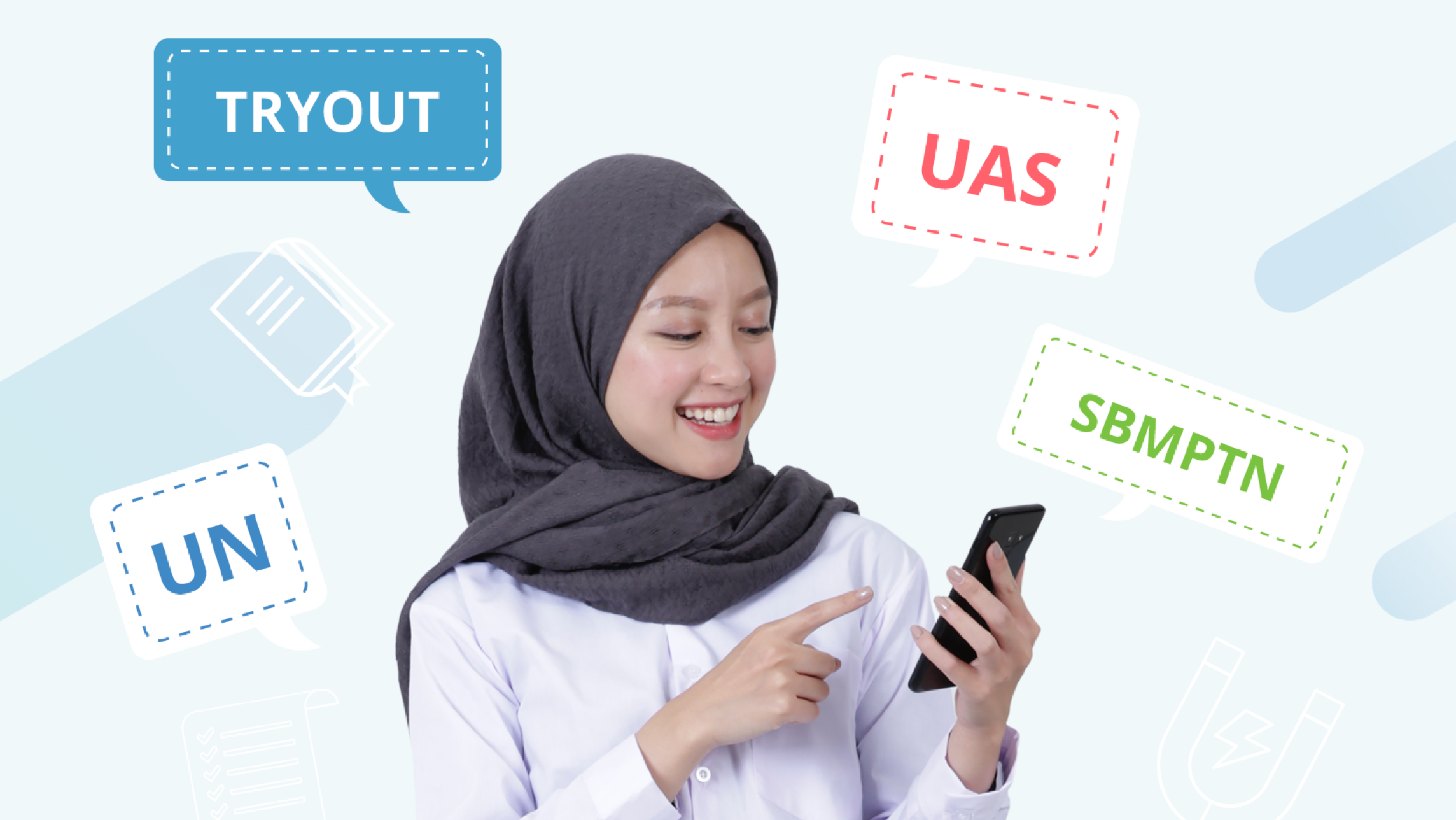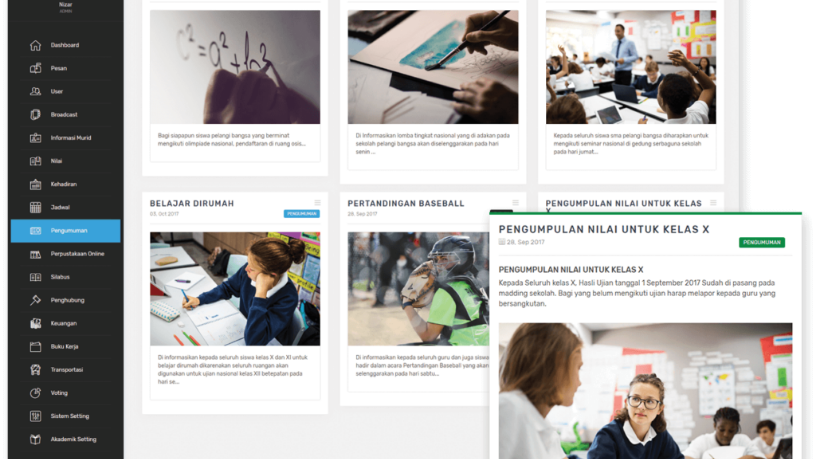In 2018, Indonesia's then-Minister of Labor Hanif Dhakiri said that Indonesia might have a 57m deficit of skilled workers by 2030. He added that, to help more Indonesian workers upgrade their skills, the government would be intensifying efforts to improve formal as well as vocational education.
Thanks to the recent boom in edtech, education at various levels is far more accessible than before. Students can take online degree programs through HarukaEDU's platform Pintaria, or take up-skilling courses on platforms such as Skill Academy (developed by Ruangguru), Coursera or Udemy.
Former journalist and avid programmer Hilman Fajrian believes, however, that Indonesian learners are seeking something different. “People go to school so they can graduate, get a certificate, which they can use to get a job,” he said. The same goes for courses: people attend courses and take tests to get the credentials they need to land a new job, secure a promotion, or apply for a raise.
Inspired by his own experiences in online learning, Fajrian established Arkademi, a MOOC platform that hosts courses aimed at professionals and fresh grads looking to advance their careers.
The company raised pre-Series A funding from SOSV last month. As they join SOSV's exclusive accelerator program, MOX, they plan to raise up to $3m in Series A funding this year to expand radically their course offerings beyond their current level of about 50 from established institutions.
Business model boosts completion rates
Arkademi hosts courses created with institutional partners, with paid courses starting from IDR 99,000. Fajrian says they are still experimenting to determine the right price, but have found that a tax-related certification test prep course had more than 300 takers even when priced at IDR 950,000. This still costs less than conventional offline courses, which are offered at IDR 3.5m at the cheapest, he added.
Similar to some popular platforms like Coursera, Arkademi sets a deadline for finishing the course: in their case, it's 45 days after payment. If the learner cannot finish the course before then, their access to the content expires and they have to re-enrol.
“When we tried the C2C model and gave unlimited access, the course completion rate was only 3%,” Fajrian said. “We realized that the business model does not inspire a sense of urgency, so we pivoted to a business model that does. We want people to finish the course, pass the test and get the certificate they need.”
When we gave unlimited access, the course completion rate was only 3%
In creating courses, Arkademi looks for topics that are in demand, and works with course provider institutions to create curricula tailored for online learning. Arkademi even has its own multimedia studio for recording learning videos, provided for course partners at no cost “for now,” Fajrian said. The course fees are split 50/50 between Arkademi and the partner.
Mobile-first focus
Keen on catering to the specific needs of its target communities of professionals and fresh grads, Arkademi focuses on a mobile-first experience.
“If the promise of online learning is that people can learn anytime and anywhere, the only device that can fulfill that promise is smartphones,” Fajrian said. Arkademi's mobile app allows learners to access their course materials on their mobile devices, so that commuting need not interrupt their studying.
Fajrian said that to create a robust and easy-to-use app, Arkademi is using Flutter, a UI toolkit provided by Google. It's not just about developing an app, however. The content needs to be tailored specifically for people learning on mobile platforms.
For Arkademi, this means that learning materials are split into short parts, and videos do not last longer than 10 minutes. Users can download the videos for offline viewing in the app, like Netflix or YouTube's mobile app. This means that they can download the videos while on office Wi-Fi and learn at home without incurring data cost.
Arkademi also had to keep in mind the stability of mobile internet connection for their learners. Thanks to technology from Amazon Web Services (AWS), Arkademi uses adaptive bitrate streaming for their videos: this means that the video quality is adjusted according to the user's connection speed, much like YouTube.
“We can only do it because we joined the AWS [Edstart] incubator; we could use their technology and computing power for free,” Fajrian said.
Current statistics, future moves
Fajrian tells CompassList that Arkademi has about 70,000 monthly average users, and the company has seen a massive 1,400% growth in GMV in 2019. Candidly, Fajrian said that this massive GMV growth is partly caused by people extending their course enrolment, especially for the higher-priced accounting test prep course.
“Some people have extended their courses three times, and they end up paying IDR 4m and more. When we asked, they say they're too busy to finish it in one go,” he said. Yet these people keep coming back, because the courses are still more affordable and easier to access compared to traditional, offline options.
Fajrian adds that he is more concerned about the number of new transactions, which will reflect their market share better. While he declined to share the specific number, he said that it has grown eight-fold from 2018.
With the monies they target to raise this year, combined with the pre-Series A funds they received from SOSV, Arkademi will reach out to more course partners and develop new materials.
The company aims to develop as many as 250 new courses, bringing the total to 300. The courses will include test prep for National Professional Certification Agency exams, which issues government-approved professional certifications for management professionals.












